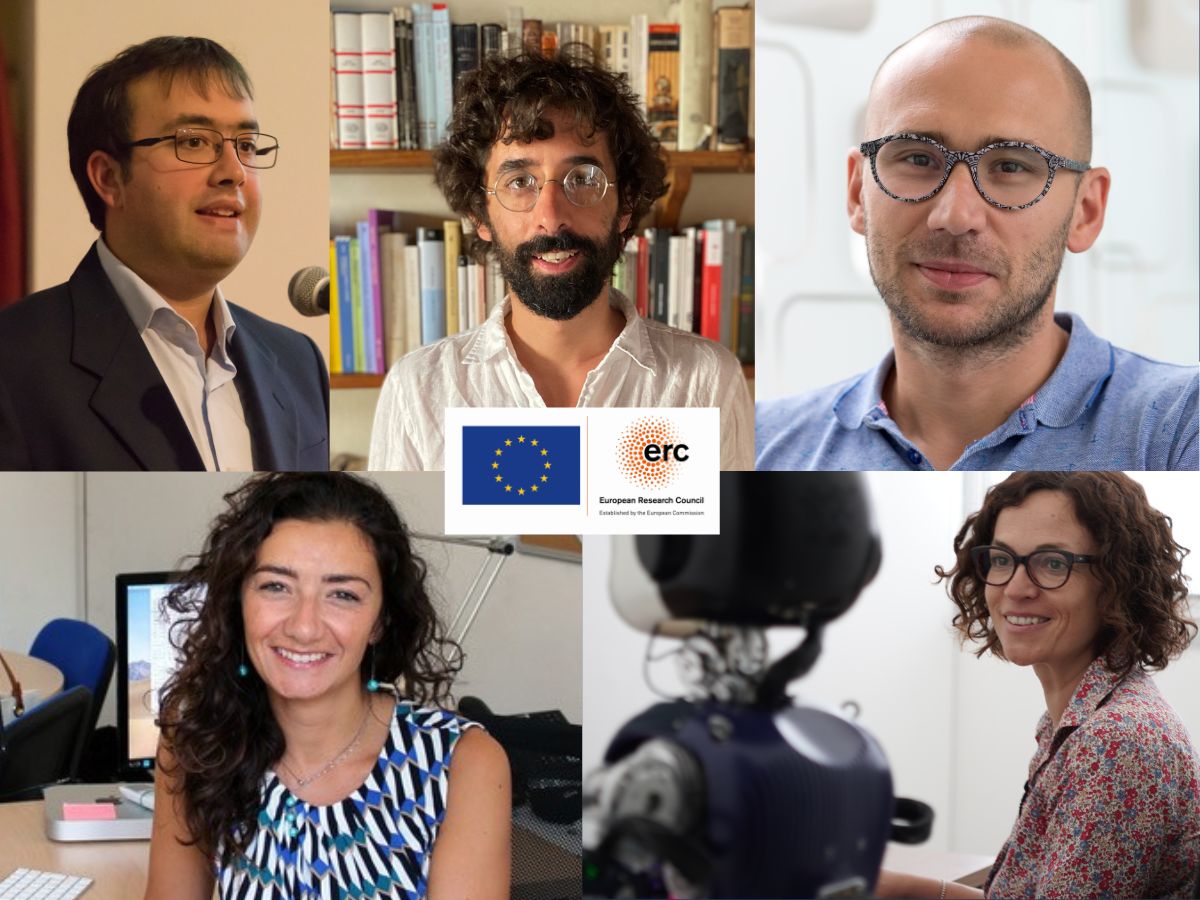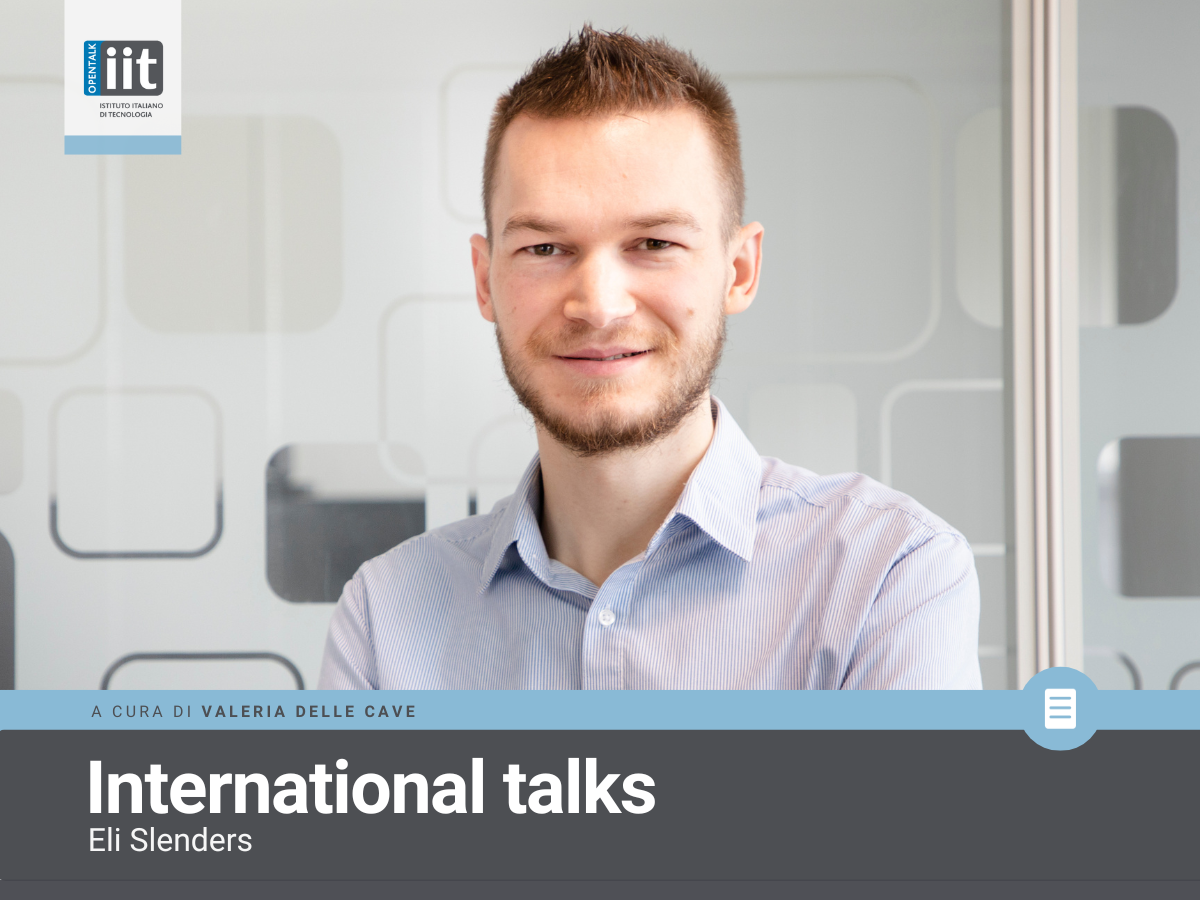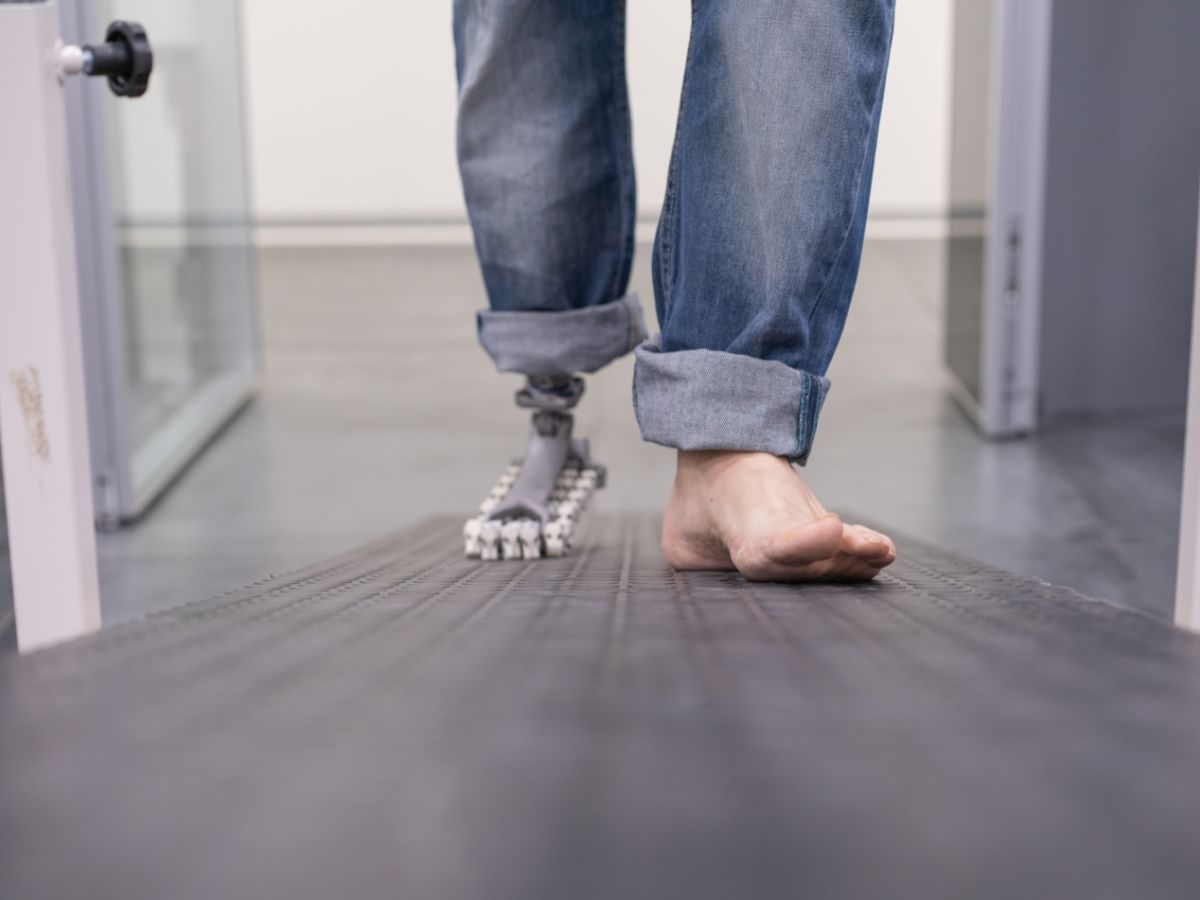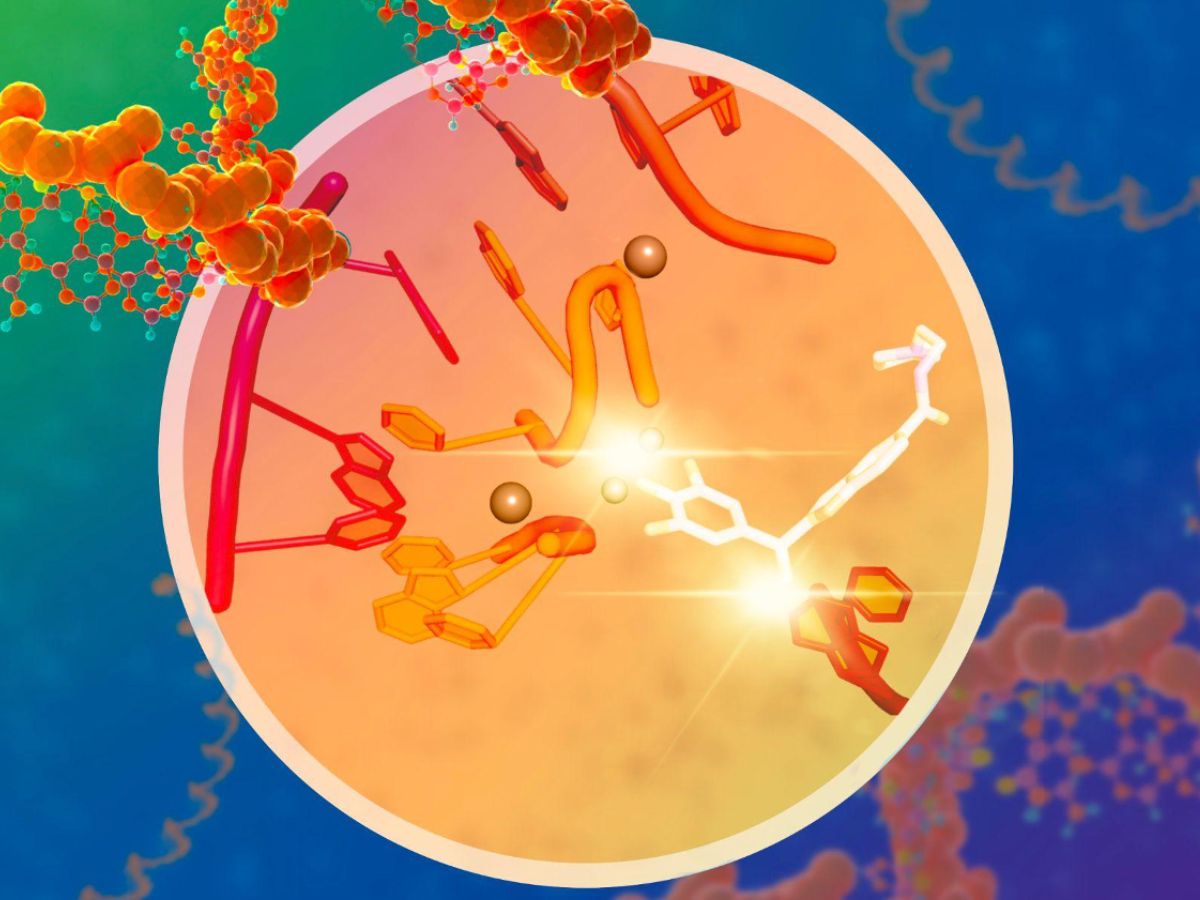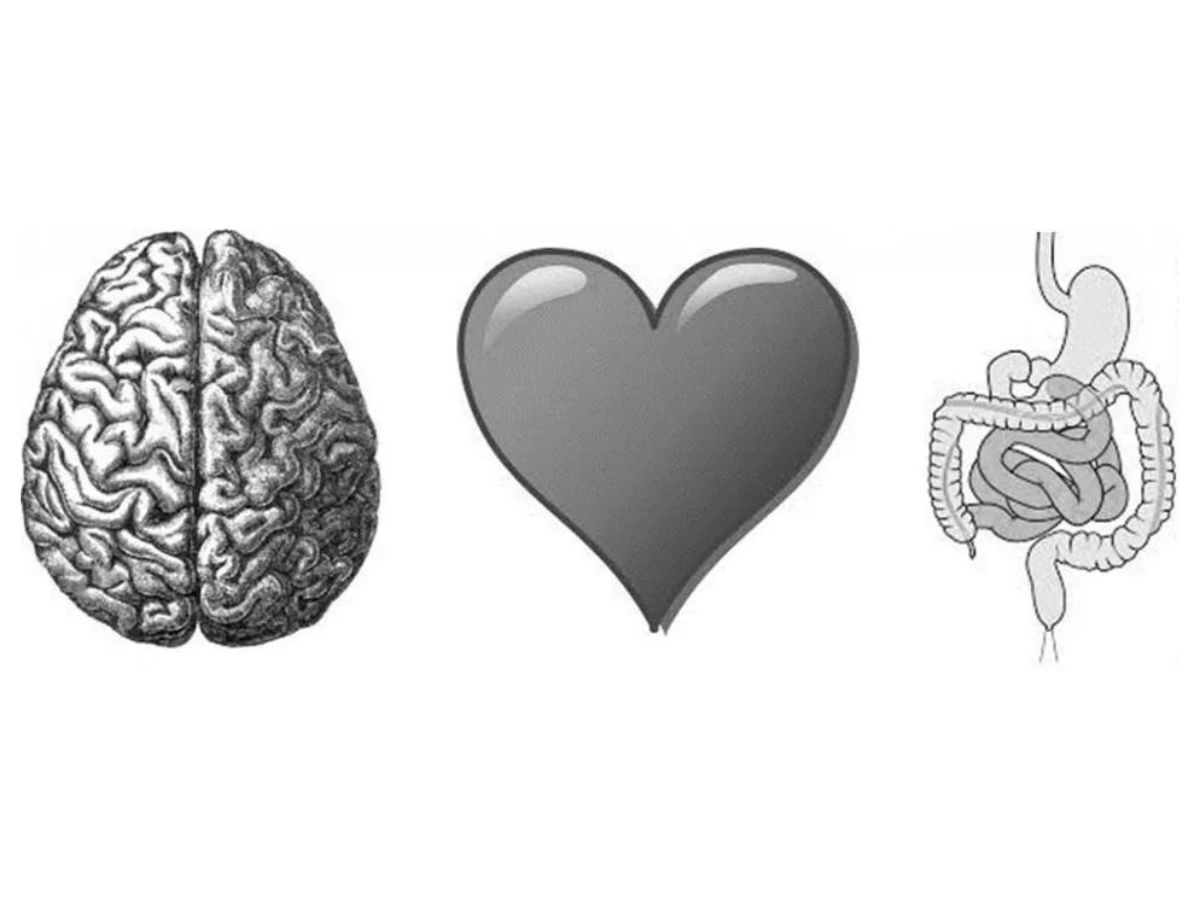The 5 projects position IIT as the institute across Europe that has secured the highest number of grants in this third round of competition
Gianni Ciofani, Francesco Di Stasio, Giacomo Novembre, Velia Siciliano, and Agnieszka Wykowska are the researchers at the Istituto Italiano di Tecnologia (Italian Institute of Technology-IIT) who have been awarded Proof of Concept (PoC) grants by the European Research Council (ERC) today. They are based in different sites of IIT, Genoa, Pisa, Rome, and Naples, and each of them will receive 150,000 euros to bridge the gap between the results of their pioneering research and the initial stages of commercialization. The 5 projects position IIT as the institute across Europe that has secured the highest number of grants in this third round of competition.
The ERC announcement includes a list of 102 new beneficiaries in 20 European Union countries, bringing the total number of researchers receiving such funding to 240 in last year’s three competition rounds. The total investment amounted to 36 million euros. The Proof of Concept (PoC) grant scheme is open only to researchers who are currently or have been previously funded by the ERC with other grants, such as Starting, Consolidator, Advanced, or Synergy.
Iliana Ivanova, the European Commissioner for Innovation, Research, Culture, Education, and Youth, emphasized the importance of ERC PoC funding in transforming “groundbreaking research into tangible innovations”; ERC President Maria Leptin highlighted that “curiosity-driven research and innovation go hand in hand”.
In Italy, 12 Proof of Concept projects will be funded, including 5 at IIT, which is the Institute securing the highest number of grants across Europe in this third competitive round.
During 2023 IIT got 8 ERC PoC grants in total: 1 in the first round, awarded to Antonio Ambrosio; 2 in the second round, awarded to Arash Ajoudani and Ilka Kriegel; 5 in this last round. Kriegel’s research project dedicated to energy storage has also been featured in ERC communication campaign today.
In this last competition turn IIT’s projects share strong interdisciplinarity and a significant impact on the health of the European population, addressing issues from tumors to neurodevelopmental disabilities, and on new quantum technologies.
Gianni Ciofani, originally from Liguria, is now in his fourth funding round from the ERC. The first grant, a Starting grant in 2016, was awarded for the development of innovative drug delivery systems against brain cancer. The second, a PoC grant in 2018 aimed at the set-up of a biomimetic model of the blood-brain barrier, while the third, also a PoC grant in 2022, aimed to apply this model to the study of brain tumors. The latest project, named BISCUIT, focuses on transforming the entire system into a mini-laboratory to directly test the effectiveness of drugs and nanoparticles within a microenvironment that replicates all the biological characteristics of the blood-brain barrier and its pathologies, from strokes to tumors. The portable laboratory, BISCUIT, would reduce the need for testing on animal models, thereby improving the success of clinical trials. Gianni Ciofani is the coordinator of the Center for Material Interfaces at the IIT in Pontedera, Pisa.
Velia Siciliano, originally from Naples, has been heading the Synthetic and Systems Biology for Biomedicine laboratory at the IIT Center in Naples since 2017. Her first funding (Starting grant) in 2019 aimed to enhance immunotherapies based on genetically modified T cells, known as CAR-T, with synthetic biology circuits to make them more effective. The combination of biological and artificial systems is also at the core of her latest project, titled BURnOUT. This project aims to apply artificial intelligence and machine learning software to identify a process that speeds up the engineering of mammalian cells through automated genetic sequencing. The system will enable a reduction in the time and cost of cellular engineering to produce drugs and living therapies, making commercial products more economically accessible.
Agnieszka Wykowska, originally from Poland, leads the “Social Cognition in Human-Robot Interaction” laboratory at IIT in Genoa. Her research focuses on understanding human social cognition during interaction with artificial agents such as humanoid robots. Wykowska secured her first funding from the ERC with a Starting grant in 2016, focusing on the investigation of how and under what conditions people perceive robots as intentional agents. From these studies, her latest project, RONIN, emerges. The objective of RONIN is to use the iCub humanoid robot within a robot-assisted training program to support adolescents with developmental disabilities in achieving independent adulthood. Through role-playing scenarios with the robot involving daily life activities, teenagers can interact with a partner (the robot) of reduced complexity compared to a human, creating a context better suited to their social skills. The educational protocols developed by Wykowska’s team will be explored in collaboration with therapists in a clinical environment to assess their effectiveness and potential future applications in the education of young individuals with neurodevelopmental disabilities.
Giacomo Novembre, originally from Florence, is a cognitive neuroscientist working at the Center for Life Nano- and Neuro Science at the IIT in Rome, where he studies the human brain and cognition with a multidisciplinary approach. Returning to Italy after a period of study and work in the Netherlands, Germany, Australia and the United Kingdom, Novembre secured his first funding from the ERC with a Starting grant in 2020. His research focuses on studying the neuroscientific foundations of human “communicative musicality,” the innate ability of individuals to communicate through music. With the latest funding for the AUTISMUS project, Novembre will apply this knowledge to develop a technology that can assist individuals with autism, who struggle with social interaction, using music-mediated social interaction.
Francesco Di Stasio, originally from Genoa, returned to Italy from Spain in 2019 thanks to ERC funding (Starting grant) for the NANOLED project. He secures a second grant for the MOONSHOT project, aiming to create the basic components of future quantum communications: luminous nanoparticles, or quantum dots, capable of emitting single particles of light for use in telecommunications. With the NANOLED project, Di Stasio identified a controlled method to create quantum dots, and MOONSHOT aims to make them operational and applicable in European industry.

